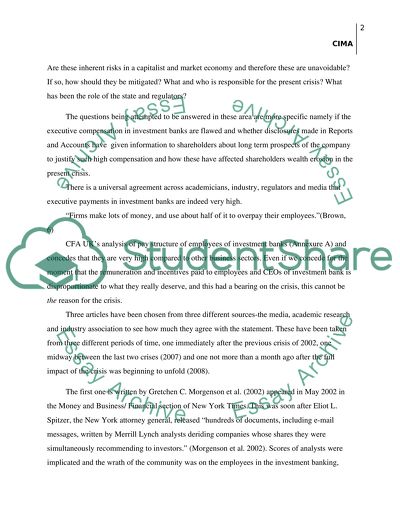Cite this document
(“Executive Compensation in Investment Banks Essay”, n.d.)
Executive Compensation in Investment Banks Essay. Retrieved from https://studentshare.org/miscellaneous/1511037-executive-compensation-in-investment-banks
Executive Compensation in Investment Banks Essay. Retrieved from https://studentshare.org/miscellaneous/1511037-executive-compensation-in-investment-banks
(Executive Compensation in Investment Banks Essay)
Executive Compensation in Investment Banks Essay. https://studentshare.org/miscellaneous/1511037-executive-compensation-in-investment-banks.
Executive Compensation in Investment Banks Essay. https://studentshare.org/miscellaneous/1511037-executive-compensation-in-investment-banks.
“Executive Compensation in Investment Banks Essay”, n.d. https://studentshare.org/miscellaneous/1511037-executive-compensation-in-investment-banks.


